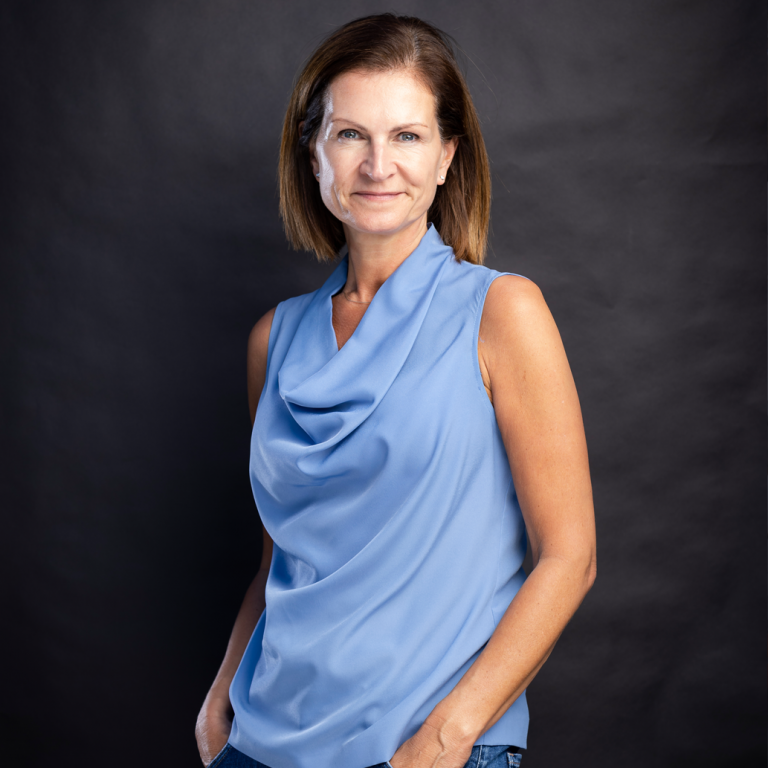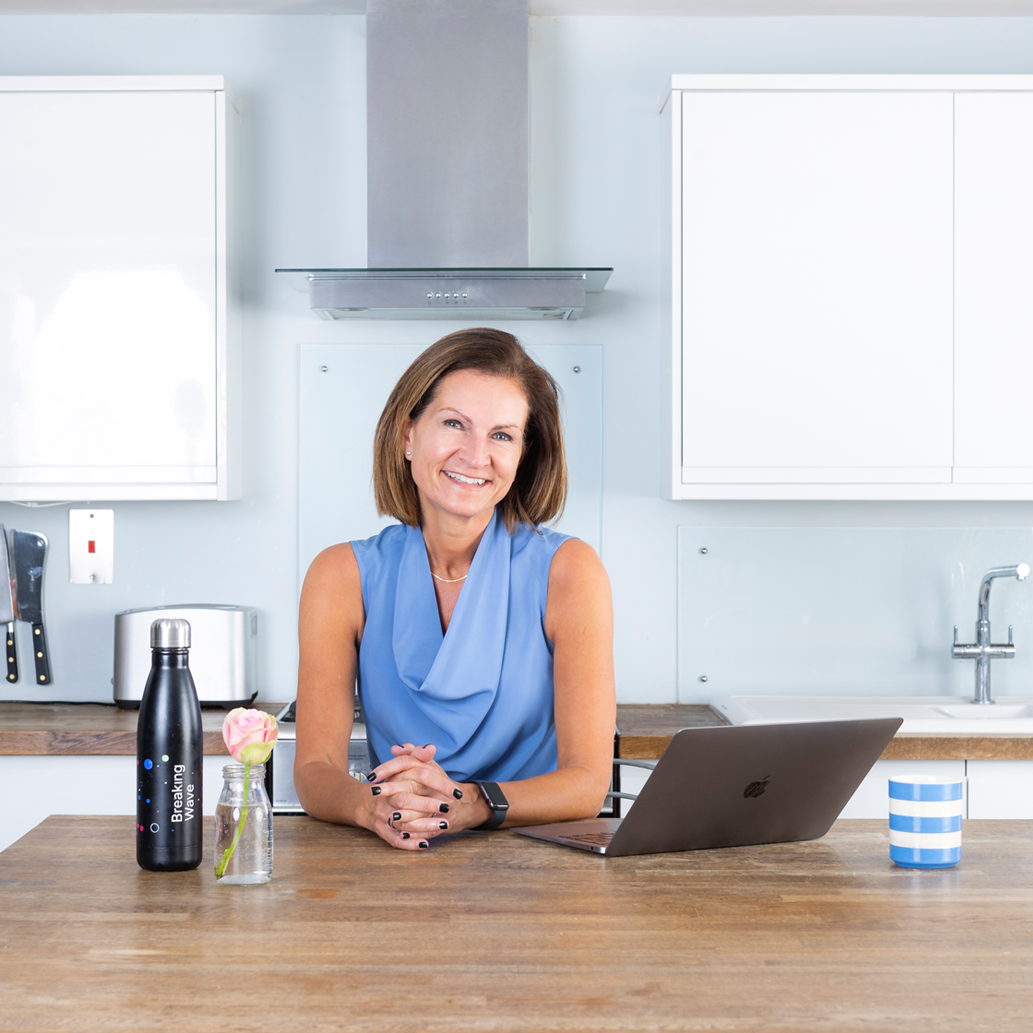“This people profession demands that we’re on our a-game, preparing for whatever may come”

“This people profession demands that we’re on our a-game, preparing for whatever may come”
Think of the world of banking and the mind conjures images of monolithic supertankers, bossed by bridges that didn’t get the diversity memo, plotting courses along predictable sea lanes. “The crash” forced captains to turn into the storm. Then Fintech was a game changer, navigating uncharted waters and, presciently, in response to the tides of change, Deutsche Bank set up Breaking Wave.

I completed my degree in Business at Oxford Brookes and after graduating, I landed a grad placement at Sainsbury’s head office in London, in food buying and it was a great start in the commercial world of business. I was of course one of many graduate joiners and we took advantage of all that London had to offer, the work hard/play hard ethic. This was the time when supply chains were becoming more sophisticated and technical and introduced me to data and analytics and, as I progressed, I began to realise that the missing jigsaw piece was the lack of ‘people’ aspects in the role. So I took the somewhat bold decision to leave and half my base salary to join RHR, a big retail recruitment consultancy that was hiring for all the big multiple retailers’ head offices. Sainsbury’s was great, but often the roles can be quite narrow in a large organisation and what I wanted was a variety of experiences in different sized companies, to find out how businesses and the people within them tick. Recruitment really exposes you to the crux of organisations and your success depends on understanding the client, the commercials and the cultures. Good recruiters have an inquiring mind – looking beyond face-value, honing those questioning skills and really understanding the client’s brief is paramount. What turned out to be a five-year tenure, this role taught me so much and equipped me with those foundational skills, particularly relationship-building.

One of the firms I was working with was really doing things differently at the time – a completely different proposition – new to Europe, very ambitious and fast-growing. That was TK Maxx and I applied for a role to head up the new resourcing team. This was a different operating model and the proposition was so attractive to candidates who had almost complete autonomy to go out, make decisions on product and seal deals, without having to keep going back for sign off. The growth was rapid to scale the business in Europe and the role was much broader than I had experienced before and I began to lean towards the talent and leadership development side. So, by a sort of process of experiential osmosis, I began to form a broader knowledge of general HR. Then very sadly, my father became terminally ill and I needed to relocate back to the Midlands, to provide what support I could. I took a role at Rolls Royce and then TNT nearby – about as different to retail as you can have and a step down – but any new experience, particularly in different sectors – is valuable and the work/life balance helped with the personal situation. TNT was a very different business of course, whereas TK Maxx was about rapid growth, TNT wanted to professionalise the talent offer, whether that was looking at the capability of the sales function or the volumes needed for the management positions and, with a big focus on training, the in-house recruitment team launched talent completely from scratch. So, although a long-established legacy business, this was a real turning point, particularly for HR operations. Time passed and a few years onwards, it was time to come back down south and I think this was an important point, as my experience set and CV was beginning to gain real interest and it came to a point where I had offers from eBay and Tesco – retail called louder and so I joined Tesco as Head of Resourcing for Commercial. This was big scale, some 600 direct hires a year and it turned out to be a more generalist HR role too. Tesco was hugely successful at the time and there was a great deal of learning & development and culture work as the business rapidly expanded. In terms of people management, there was a definite onus on culture and leadership skills and generally a more sophisticated style of HR, in a sector previously known for being commercially-led and cut and thrust. I was also involved in a good deal of succession work and here, diversity & inclusion was a key focus in the future vision.

Yes, during my time there, Tesco was at its most successful and was number one of the big four. So, the question of what could possibly go wrong always had to be on the agenda and must dictate business sense – it’s no good operating as if you’re immune to pain. During my time as the Head of HR for Food, the horsemeat problem was a catalyst and then came the disruptors in the shape of Lidl and Aldi. In 2014, Dave Lewis joined as the new Group CEO and he was very much a brand and customer expert, from Unilever. This was a critical time for Tesco having fallen for some sucker punches and was suddenly in the position of having to reinvent itself, thanks to some bad publicity and changing markets. This is where Tesco proved to be brilliant, in terms of its resilience, speed of reaction and execution capability at scale. It was a tough challenge and for all the “what if?” planning, somewhat out-of-the-blue. But such times call for great leadership and engaged, capable people across the board and that steadied the ship as it changed course. It taught me the importance of supportive leadership, making sure that we are communicating to the teams as often as possible and being authentic and transparent. If it’s bad, tell people, be open, don’t try and hide the truth, but lay out the plans at the same time.
Tesco tends to move you around a fair bit for all sorts of reasons – mainly so that you stay up-to-date and keep developing – and, next for me was another change, to a role in marketing and digital. The digital team had its own new offices in Farringdon, to attract tech talent in London and Michelle McEttrick started as the new Group Brand Director, so it was an exciting time to join brand and to work on the transformation and my experience in the commercial team really came into play. Digital was just a whole different ballgame, balancing the demands of tech talent with the existing retail business. This obviously called for the best talent in software engineers, UX and data scientists and Tesco was just another organisation competing in a very competitive market which was vying for this talent. I was part of a big change in the business and scaled the Digital team. After this hectic time, it was a time for reflection for me, from a career perspective. In my branding and digital role, I watched as Natasha Adams became UK HR Director (and subsequently Group HRD) and formed her team and I felt compelled to try for the Group Talent role, which had an international remit. The appeal of strategizing for the Group, creating the talent strategy, working with the executive committee on succession planning, senior development plans and defining the diversity & inclusion strategy was compelling. Career-wise, this was a step up, working at group and regional strategy level. When work is this intense and absorbing, you blink and five years goes by – it’s always a bit of a career milestone – should I stay or should I go? By chance, my colleague – Thomas Nielsen, Tesco’s Digital Product Officer – had recently moved to Deutsche Bank and we met up and he explained why he had moved and would I consider financial services as another sector change? He outlined a number of change possibilities, one option being a new, but small entity in this massive financial institution. I joined as Change and Culture Director and, after setting out the plans ahead – the operating model and governance framework amongst other things – we wrote the blueprint which quickly became Breaking Wave.
To Deutsche Bank’s credit, they are by culture brave and receptive to new concepts and, at this level, they almost immediately saw the advantages of the business model and reasons for forming it. They agreed to invest and take it from plan to fruition. There is no shortage of great ideas in Deutsche Bank and the business case was around extending our execution capability. Typically, in big corporates you can easily come to grief by delay and tripping over red tape, but in this fast-moving digital landscape, delay is of course fatal. So for the bank, what was proposed here was a very pure focus on executing on new concepts quickly and either moving projects along to the next stage – i.e. finding the right talent to develop it – and launch or kill without delay. Very quickly, we found a great proposition, “with the bank, for the bank” and Breaking Wave became this pure, ‘air gapped’ software engineering capability, that can enable teams to build and ship quickly. When I say air gap, I mean we have a governance framework applicable to a technology business, which is hugely liberating. Two years in and we have developed an agile partnership with the bigger organisation, which is proving to be a winning formula. To all intents and purposes, we’re an inhouse fintech, capable of enabling execution at speed and all the benefits that brings. We’re also very independent from an HR policies perspective and have our own values, benefits and compensation framework, plus we have our brand and identity and I think we are gaining traction and confidence across the bank. I do think the will was there from the start, which was a great launch platform, but we needed a real partnership with Compliance, in order to be really established.
One of the big culture elements of Breaking Wave is to knowledge share, collaborate and “demo through doing”. It provides the environment to trial, experiment, fail fast and move on and we developed this very beautiful collaborative office space, where teams could ideate and brainstorm together. Of course, the pandemic means that this cannot happen there at the moment, so we’re making more use of tools like Miro and we’ve adapted the operating model, which required us to agree with Compliance that this was safe and secure and would not cause any additional risk for the bank. We’ve adjusted the business model so anybody across the organisation globally can gain access to the remote Breaking Wave environment and, because this is a digital platform, it’s actually creating even more of a community proposition. It will now scale through either internal Deutsche Bank or partnerships with vendors – and even across the gig economy – as part of what has become the Breaking Wave community. This is the at-scale proposition now, which I think is really in line with the changes in work for the future. This pandemic has forced the proposition that people can work from anywhere and we’re just experimenting with what that might look like, ensuring the fully-remote product is not inferior in any way.
We have been reimagining what our purpose of face-to-face time is most beneficial for and it won’t necessarily be the same as before. Like any big and impactful event, situations, people and priorities change. There are businesses that are fully remote, but with Breaking Wave, we have one customer in Deutsche Bank and we have taken a lot of time being very deliberate about the culture we want and ensuring our values are relevant and lived. I believe if you have those elements in a strong position, you can withstand a shock. Sure, an extended period of time not seeing each other face-to-face is going to cause changes, perhaps some that we cannot even contemplate right now, but values are values, wherever you’re working from. There’s a certain amount of – let’s just call it cultural credit – and as we go along, we have to consider both the good and the bad and react to it accordingly. Right now, we are considering what the key events for team building are and an element of this is how we can best and most beneficially use our office space, plus how can other teams across the bank make use of the space for their benefit.
Indeed, but something like a terrorist attack is designed to happen in a flash, whereas this pandemic has been a long, drawn-out and slow-motion event, with just unimaginable trauma for those that have lost loved ones or suffered in other ways. But there is something about the collective spirit, where we’ve all been affected, isolated – often alone, but together. I don’t think we can ever forget what this represents and we must not waste an opportunity to use the experience. As for the Government’s directive for a return to work, what we won’t do is force anybody into doing something that they don’t want to do, particularly those who have vulnerable friends and relatives. We’ve witnessed the impacts and it’s too great a risk in such volatile times to force that decision on anyone, such directives are not aligned with our culture. We moved to people working remotely two weeks before the Government shut everything down and we had everything in place. We also made sure that if anyone was isolated or in danger at home, that they could talk to us.
Yes, because I think we were so well set up and had started to prove our worth, with more and more requests coming through the business for us to collaborate on projects. Our original suite of tools included; Microsoft Teams, Slack and Miro, which is our virtual whiteboarding platform, so we didn’t need to rush to add anything new, it was already live and operational. So, if anything, we’re busier than ever and galvanising relationships right across the business, making sure that our proposition is fit for the scale of demand. Consequently, we’ve more project demands now and, in some cases, we have gone into overdrive to keep up with demands. I really think we have managed to start to build up respect and trust.
You can prove change projects more effectively through reality rather than theory and how we’re positioned now fits nicely across all the different innovation streams in the bank. Whether that’s our innovation labs who partner with external Fintechs, creating connections, obviously the internal technology teams and we also have entrepreneur programmes, so a wide variety of diverse platforms. It’s a rich combination of entrepreneurship and internal consulting and Breaking Wave is placed to enable and execute on plans with a sort of internal Fintech build capability. I believe that, in the longer term, it will prove to be a game changer in the sector. It is good to have something internal, fulfilling this imperative of change, within the existing governance framework and risk appetite of the bank. That’s also why we were very deliberate about how we positioned ourselves and what our culture and values represent.
You cannot ignore the impact of COVID-19 and it has demonstrated in too many ways the need for; community, collaboration, empathy and having a caring culture that is genuinely concerned about people’s wellbeing. It has set a precedent, a benchmark about how organisations have supported and looked after their employees, which I believe will have long-term implications on how an employer is perceived, both internally and externally. So those are values that we intend to continue to build upon and I think the big one is community. From a business planning point of view, scaling and economies of scale are a critical balance for us going forward – if resources are too flat then that could jeopardise delivery, too heavy and you lose agility and it’s also how we operate both internally and externally with vendors. For sure, we’re still evolving the operating models, but in the immediate future, as the pandemic continues to grip for the foreseeable future, it’s about supporting the safety and wellbeing of employees. Whenever that first month is that we trial coming back into the office, we need to be correctly calibrated and ready.
Well, it’s going to be different… back to work, the new normal? I don’t think you can simply label it or call it, it will fundamentally change the world of work and a neat little soundbite just doesn’t seem appropriate. However, despite the ambiguity of the times and the volatility of the global situation, I genuinely am optimistic for the future. Business leaders keep putting the ball into the long grass and talk is of January 2021 – meantime, there’s a tough autumn and winter to work through! This is a people profession and we really have to be on our A-game, supporting our culture and values, innovating, preparing for whatever may come and wherever we may eventually arrive at.
Vertex Associates are excited to be partnering with an international Insurance business in their search for 2 HR Assistants – one is permanent and one
Head of Human Resources Our client are looking for a talented Head of Human Resources to join their team and help millions of separated children
Queen Mary University of London – HRSalary: £39,463 to £45,974 per annum.
All about the role and company I would be working for: HR Coordinator / Administrator Location: London (Hybrid – 3 days in office) Are you